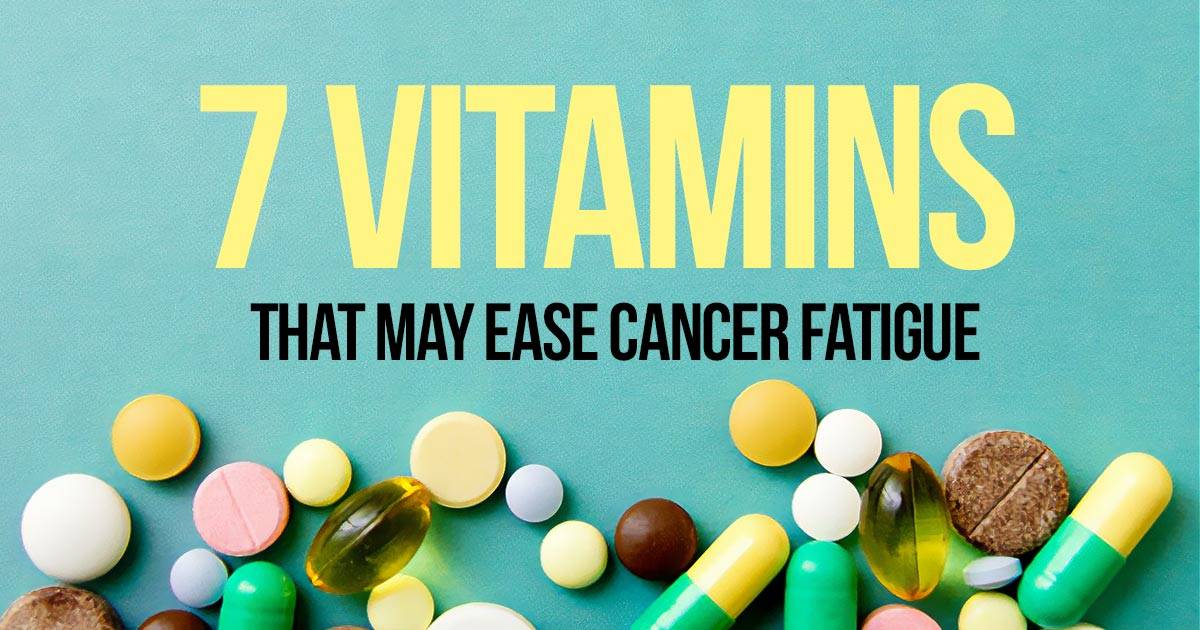7 Vitamins that May Ease Cancer Fatigue

A cancer diagnosis is tough, and treatments can be even harder, causing issues like low energy, pain, and anxiety. Some patients consider searching for the best vitamins to take during chemotherapy to help with these side effects. However, supplements can also have side effects, interfere with cancer treatments, or be risky due to other health conditions.
Even natural supplements like green tea extract or garlic can be harmful. Since many supplements lack strong evidence of effectiveness, it’s crucial to consult healthcare providers before using them to ensure they are safe and possibly helpful.
Vitamins That May Help with Cancer Fatigue
Patients with cancer may find certain vitamins to be helpful in reducing their fatigue. Below are some vitamins for chemo patients who want to experience relief during their treatment.
Vitamin D
Many cancer patients often face a shortage of vitamin D, a fat-soluble nutrient known as the “sunshine vitamin” because our bodies produce it when our skin is exposed to sunlight. Studies have mixed opinions on whether a lack of vitamin D might increase the risk of certain cancers. However, it is known that vitamin D can help reduce inflammation and regulate the immune system in cancer patients. Addressing vitamin D deficiency in these patients could potentially support their overall health and treatment outcomes.
Fish Oil
Fish oil contains two key omega-3 fatty acids: EPA and DHA. While most research on omega-3s has focused on heart health, ongoing studies are looking at how fish oil might help with cancer-related issues like joint pain, muscle aches, neuropathy, and depression. Research also indicates that high-protein and omega-3-rich diets before surgery can lead to better recovery outcomes.
Since good nutrition is vital for surgical success, patients who are malnourished are often advised to take oral supplements rich in protein and omega-3s both before and after surgery. For heart health, a diet including fish like salmon twice a week, regular exercise, quitting smoking, and other healthy lifestyle choices are recommended.
However, fish oil acts as a natural blood thinner, so it’s important to talk to a doctor before starting any supplements.
Probiotics
These bacteria can help keep your digestive system healthy, support your immune system, and reduce the diarrhea often caused by antibiotics or chemotherapy. New studies also suggest that gut bacteria might affect fatigue and memory problems from chemotherapy, known as chemo-brain.
While probiotics can be helpful for some dealing with digestive issues or chemo-brain, some research indicates they might reduce the effectiveness of immunotherapy. Since it’s hard to get enough probiotics just from food, consider eating more probiotic-rich items like kefir, Greek yogurt, kimchi, miso, and other fermented foods. A high-fiber diet with fruits, vegetables, legumes, and whole grains can also improve the variety of bacteria in your gut. Always consult your healthcare team and get nutritional advice before starting probiotic supplements.
American Ginseng Root Powder
Studies show that American ginseng might help with tiredness in cancer patients, but we need more research to be sure. According to a review of various studies, ginseng may be both safe and effective in combating cancer-related fatigue. However, the quality of these studies varies, so we can’t yet say for sure if ginseng should be a standard treatment option. It’s important for researchers to continue studying this to give us clearer answers.
L-glutamine (glutamine)
Glutamine, a type of amino acid that our bodies can make, is crucial for building proteins. It can also be helpful for keeping cells healthy, especially in people with cancer. Taking a supplement called L-glutamine might ease the symptoms of nerve damage caused by chemotherapy, like numbness and tingling in the hands and feet. Additionally, it could protect the digestive system and possibly even reduce mouth sores, which are common side effects of chemotherapy. This supplement could be beneficial, but always talk to your doctor before starting any new treatments.
Vitamin B12
Vitamin B12 isn’t usually seen as an antioxidant. However, some people feel more energetic during chemotherapy when they take B12 supplements. Despite this, certain studies have found that using B12 during chemotherapy could lead to worse treatment results. It’s important to discuss with your doctor whether taking B12 is safe and beneficial for your specific situation during chemotherapy. Additionally, B12 is essential for nerve function and red blood cell production, so balancing its benefits and risks is crucial.
Multivitamins
Taking a daily multivitamin can provide essential nutrients for those whose appetite and diet change because of chemotherapy. These vitamins can help fill in the gaps and ensure your body gets what it needs to stay strong during treatment. However, it’s important to check with your doctor before starting any new supplements to make sure they’re safe and suitable for you. Additionally, focusing on a balanced diet with plenty of fruits, vegetables, whole grains, and lean proteins is also important for getting all the nutrients your body needs to cope with chemotherapy.
Choose Vitamins for Cancer Patients That Help Relieve Chemo Effects
For anyone facing the challenges of cancer treatment, navigating the world of supplements and vitamins can be overwhelming. It’s essential to remember that while some options may offer relief from symptoms like fatigue or digestive issues, others could potentially interfere with treatment or even pose risks to your health. Always consult with your healthcare provider before adding any supplements to your regimen. Together, you can create a plan that addresses your unique needs and ensures you’re getting the support your body requires during this difficult time. Remember, your health is the top priority, so take the time to make informed decisions and prioritize your well-being throughout your cancer journey.
